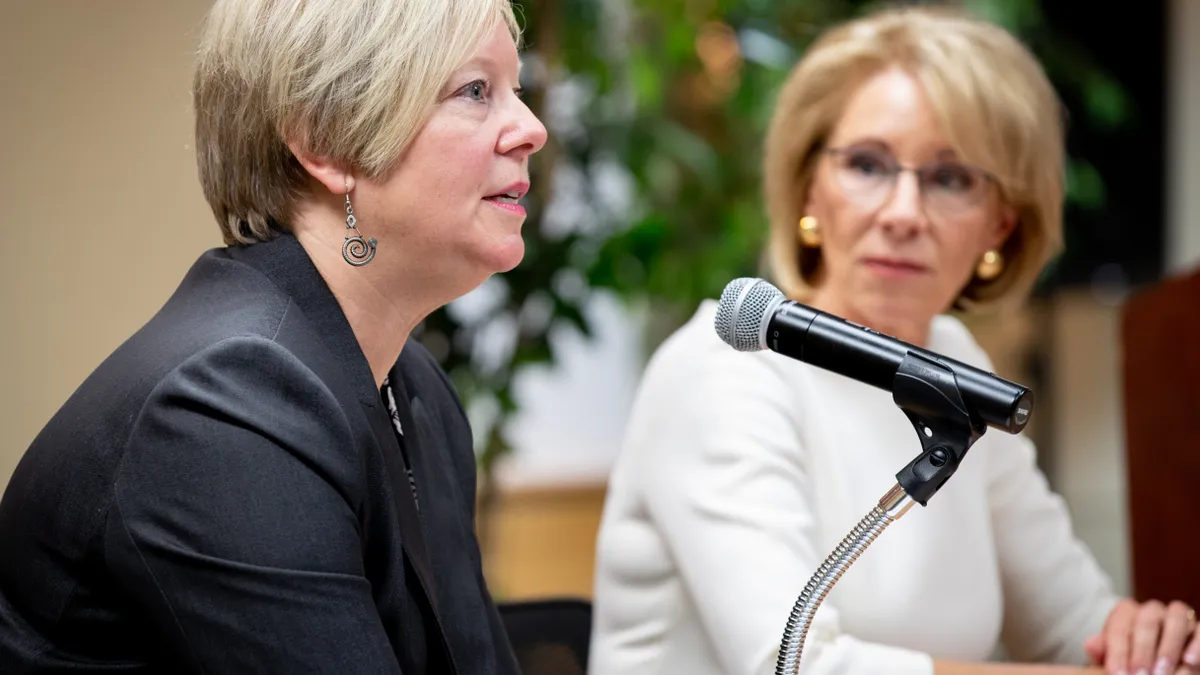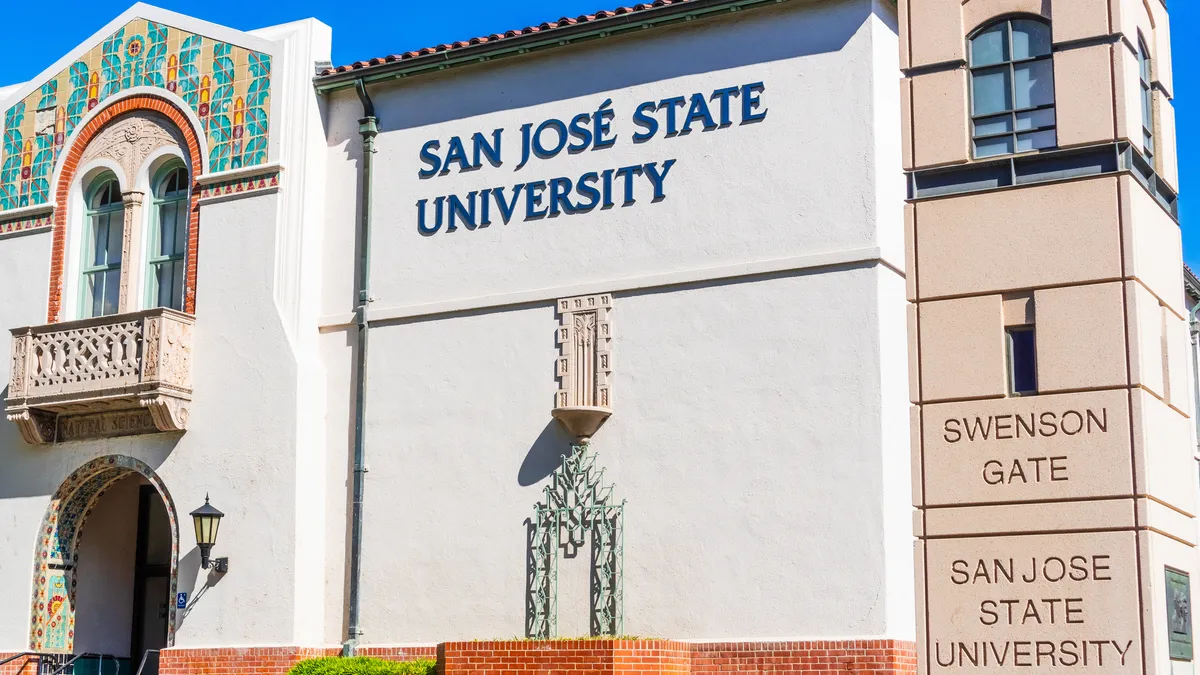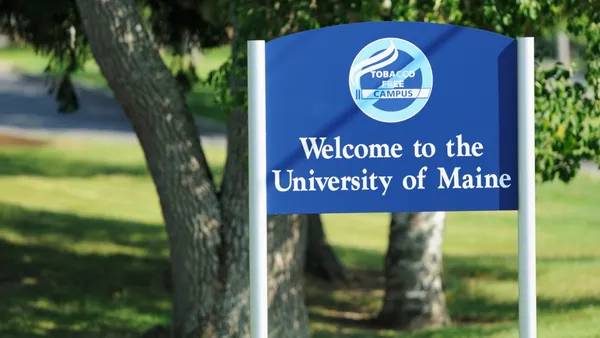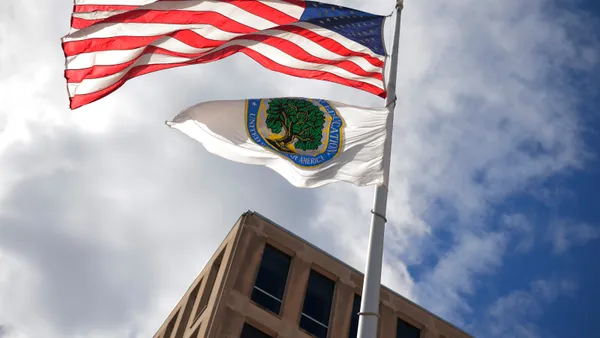Dive Brief:
- A top U.S. Education Department official said last week that the agency is looking at ways to provide support for income-share agreements (ISA), an approach to financing postsecondary education that has gained favor in some quarters by having colleges share risk with students on tuition.
- During a panel at the annual Reagan Institute Summit on Education, Diane Auer Jones, principal deputy under secretary at the department, said officials there hope to experiment with federal support for ISAs. She warned, however, that such agreements must be designed carefully and may not work for every institution because for some, particularly those with open enrollment, the financing structure would be untenable.
- Jones was joined on the panel by Chok Leang Ooi, co-founder and CEO at the Indianapolis-based Kenzie Academy, a two-year tech training program that uses ISAs. He also warned that federal involvement would have to be done with care.
Dive Insight:
While ISAs are gaining attention, the concept has been around for some time. In the 1970s, Yale University experimented with allowing students to pay off their collective debt as a percentage of their income over 35 years. The plan backfired when participants defaulted or paid large sums early in order to exit the arrangement, leaving some paying significantly more than anticipated, according to Bloomberg Businessweek. Yale eventually forgave the remaining debt.
Since then, ISA agreements have been refined and adopted by institutions beyond the boot camps and other nontraditional postsecondary institutions that initially gravitated toward them because of the high earning potential of the tech-based careers they serve. Between 3,000 and 5,000 students have used the option, The Economist reported in July. That represents a relatively tiny share of the overall market.
Purdue University has gotten attention for its Back a Boiler program, which was instituted in 2016 and funds a portion of tuition upfront in exchange for a share of post-graduate earnings for an agreed-upon number of years once students surpass a minimum income threshold. Like other ISAs, it has backing from donors as well as from the nonprofit Strada Education Network, Bloomberg reported.
The University of Utah announced in January that students in certain majors who are close to graduation could borrow up to $10,000 per semester and pay it back with 2.85% of their post-graduate earnings for up to a decade once they make more than $20,000 a year. Colorado Mountain College, Clarkson University and Norwich University have also offered some form of ISA to their students.
The private sector has taken interest, with one new company allowing colleges to sell shares in their ISAs to qualifying investors.
An ISA experiment run by the federal government, as Auer Jones suggested during the panel, could prompt other colleges to explore the option.
The expansion of competency-based education (CBE), which has been spurred in part by an Ed Department experiment, could inform how ISAs are handled. The department has approved around 30 colleges as experimental sites for two types of CBE programs, in which students move through coursework at their own pace based on their ability to learn the material.
However, some criticisms of a department-level experiment suggest that over time it restricts new thinking by directing efforts to follow a certain framework in order to win the necessary approvals and Title IV support.













